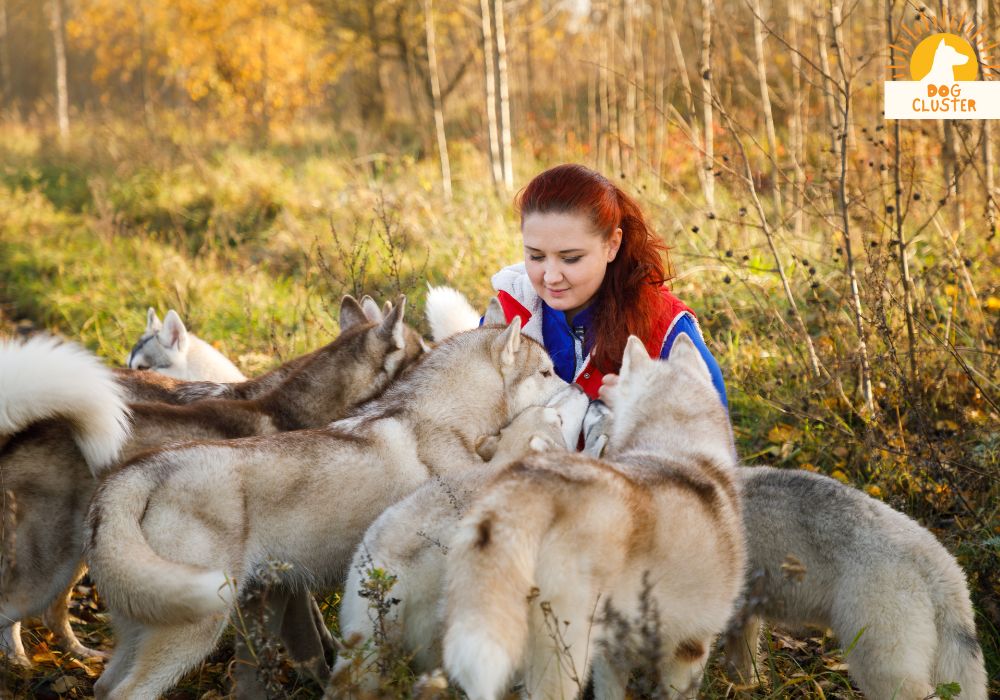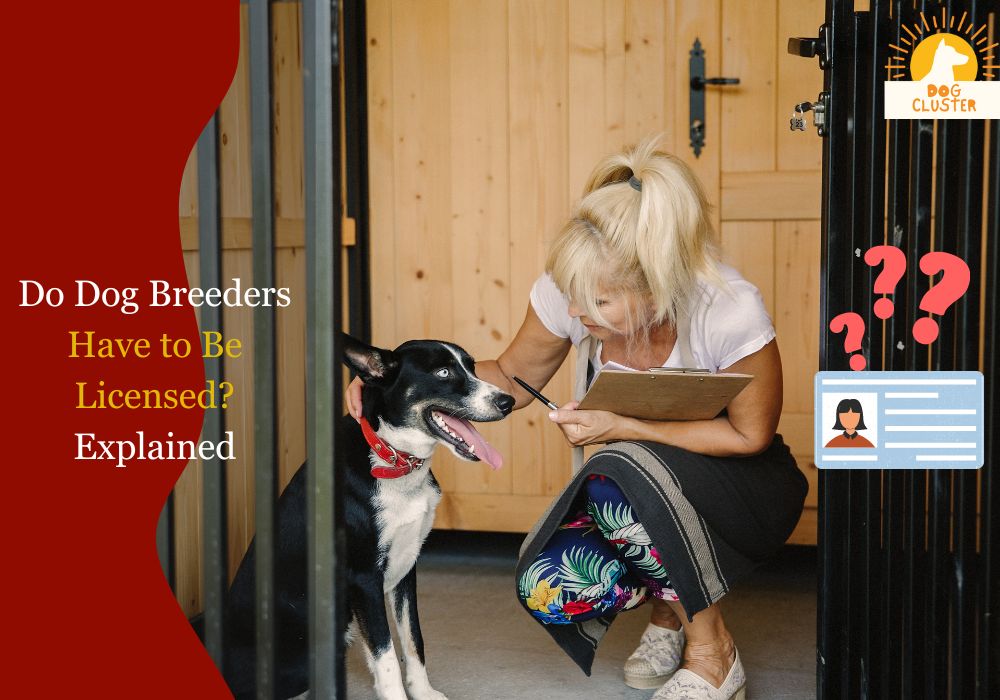Yes, dog breeders have to be licensed.
Dog breeding requires skill, knowledge, and specialized training to produce healthy puppies. While many breeders are responsible, some engage in unethical practices. To be safe it is important to know licensing requirements for dog breeders, laws and regulations, the importance of registration (including AKC recognition), and penalties for unregistered breeders. All these are explained in brief in this post. Keep reading to understand ethical dog breeding and industry measures by reading on.
Table of Contents
Understanding Dog Breeding as a Profession

Dog breeding as a profession involves the specialized practice of breeding dogs to produce specific traits. Responsible breeders must prioritize the health, temperament, and breed standards of their dogs. They need extensive knowledge of genetics. They carefully plan, monitor, and care for their dogs to ensure successful outcomes. By preserving and improving specific dog breeds, breeders play a crucial role in the animal care industry. Their expertise contributes to the development of healthy and desirable litter. The profession requires adherence to federal and state laws, including licensing.
What Does a Dog Breeder Do?
Dog breeders select and mate dogs to produce desired liters with specific characteristics. They ensure the health of dogs through veterinary care, nutrition, and socialization. Breeders maintain breeding records to track lineage, health, and breed standards while working towards improving standards and overall health. They may show dogs, compete in dog sports, or participate in breed clubs.
Ethical Practices in Dog Breeding
Ethical dog breeders prioritize the health, welfare, and well-being of their dogs and puppies. They consider health, temperament, and breed standards when selecting dogs for breeding. These breeders provide proper veterinary care, nutrition, socialization, living conditions, exercise, and mental stimulation. They commit to responsible breeding practices and placing puppies in suitable homes.
The Necessity of Licensing for Dog Breeders

Dog breeder licenses are necessary to regulate and enforce care standards for dogs and puppies. They promote animal welfare and humane treatment by setting minimum care, health, and record-keeping requirements. Licenses prevent cruel practices and allow monitoring of breeders for compliance with laws. Licensing is crucial for maintaining dog well-being and responsible breeding practices.
What is a Dog Breeder License?
A dog breeder license is a mandatory requirement for operating breeding facilities. It signifies that breeders have met specific standards of care, health, and record-keeping. This license helps regulate breeding facilities. It ensures the well-being of dogs and prevents substandard practices. Typically issued by state or local government authorities.
Laws and Regulations for Dog Breeding
Dog breeding laws and regulations aim to protect animal welfare. They cover care standards, breeding limits, health requirements, and licensing. Breeders must be aware of federal, state, and local laws to comply with breeding practices. Specific laws may exist for commercial breeders, facilities, and purposes. Stay informed about new laws and regulation changes.
Importance of Registration for Dog Breeders

Registering dogs and puppies is crucial for breeders. It provides official recognition of breed standards, lineage, and pedigree. Registration establishes authenticity and enhances value and marketability. Breeders can register through specific registries, kennel clubs, or associations.
Recognizing the Significance of AKC Recognition
AKC recognition is highly valued in dog breeding. It signifies a breed’s purebred status, documented lineage, and adherence to breed standards. This enhances the credibility, reputation, and value of breeders, their dogs, and litters. AKC registration also allows breeders to participate in prestigious dog shows and events organized by the AKC. Additionally, the AKC provides valuable resources, education, and support to help breeders maintain standards and improve their practices.
How to Register as a Dog Breeder?
To register as a dog breeder, you need to meet specific requirements. These are set by breed clubs, kennel clubs, or breed-specific registries. The requirements may include breeding dogs of the specific breed, maintaining proper records, and adhering to breed standards. It is a must to ensure you understand the registration requirements of your specific breed to ensure a successful registration process.
Do Unregistered Dog Breeders Face any Penalties?
Unregistered dog breeders may face penalties, fines, or legal consequences for breaching licensing requirements, animal welfare laws, and breeding standards. Penalties can range from warnings to criminal charges for severe cases of cruelty and neglect. Compliance with licensing is crucial to operate ethically and avoid potential penalties.
Conclusion
Becoming a licensed dog breeder is important for the well-being and quality of your puppies. It ensures legal compliance, promotes responsible breeding practices, and protects both dogs and buyers. Licensing also provides credibility to potential customers. Familiarize yourself with local laws and regulations. Obtain the necessary license. It helps to contribute to the welfare of dogs and the breeding community.
Share me if you have any stories and thoughts. I would love to read your feedback. Stay with dog cluster and gather knowledge about dog.
Frequently Asked Questions
Do you have to declare income from selling puppies?
Income from selling puppies is taxable and must be declared on your tax return. Depending on the amount earned, you may need to register as a business and obtain a license. Consult a tax professional for guidance on reporting puppy sales income.
Is it legal to breed dogs without a license?
Breeding dogs without a license varies depending on state and local laws. Some states require licensing for dog breeders, while others do not. Breeding without a license in states that require it can result in fines or legal consequences.
Are there any regulations that govern dog breeding practices?
Yes, some regulations govern dog breeding practices. In the US, the Animal Welfare Act establishes minimum standards for the care and treatment of dogs in commercial breeding facilities. Additionally, some states have licensing requirements for breeders.
What steps should be taken to ensure that a licensed dog breeder is reputable and trustworthy?
To ensure that a licensed dog breeder is reputable and trustworthy, it is important to conduct thorough research on their credentials and reputation. There are different forums for dog owners. Reviews from those forums can help in the authentication of the breeder. Also visit the breeder’s facility, asking for health clearances. Choose a transparent breeder who provides ongoing documents on their support.




Leave a Reply